Theresa May's China trip more than a 'getting-to-know-you session'
- Published
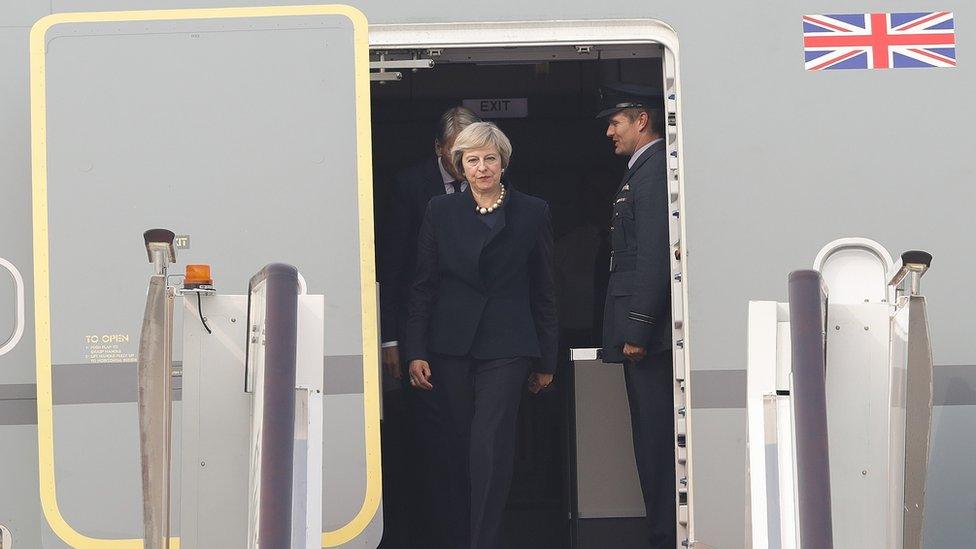
Theresa May is in China for the G20 summit
As the prime minister emerged through the grey curtain separating her cabin from the rest of the government's RAF Voyager plane to face nearly 20 journalists at close quarters, she joked: 'It's the first time I've done this… It's the first time I've been on the plane."
And with a look of slight trepidation, she added: "It's my first time to China as well."
But this journey is much more than Theresa May's first trip to that country and much more than a getting-to know-you session for her and the leaders of the world's most powerful countries.
She wants to project a message that Britain is very much a diplomatic friend worth having, despite our upcoming withdrawal from the European Union.
Remember, nearly all of Britain's allies cautioned the public against voting to leave, so part of the prime minister's task, unusually perhaps, is one of reassurance to the country's diplomatic friends around the world.
She warned on the plane, as she did in an interview with the BBC, that there could be "difficult times" to come in terms of the economy.
All sorts of issues will be discussed, though, not just Brexit - concerns in the global economy, climate change, and security, among others.
And like at any gathering, it might be wise not to offend the host.
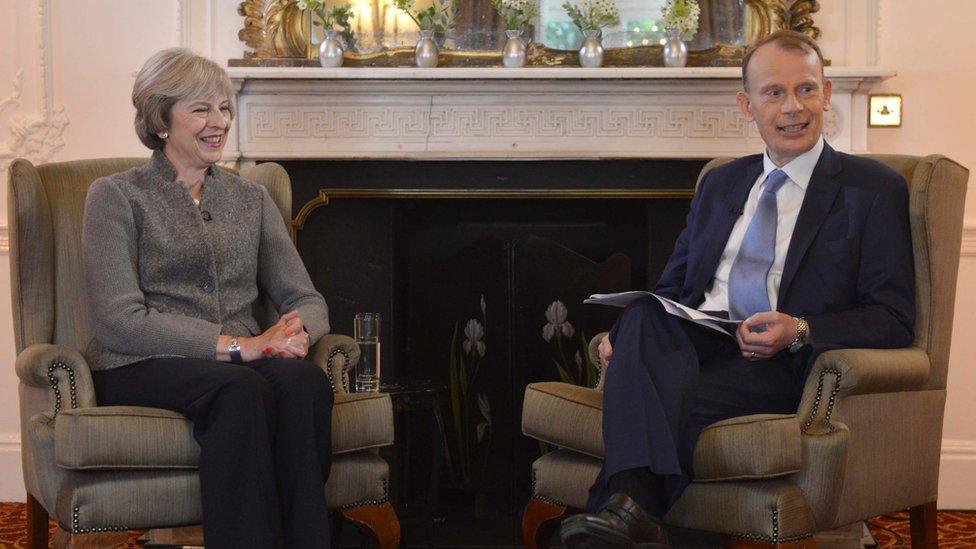
Theresa May told the BBC there would be "difficult times ahead" for the UK economy
Arriving in China, Theresa May will have to tiptoe very carefully to avoid doing that.
Because the trickiest immediate issue on this visit for the PM is arguably not leaving the EU, but her delay to the decision on Hinkley Point, the nuclear power station the Chinese plan to spend billions on.
The delay alone has infuriated the Chinese, who want to invest at Hinkley and then use their own technology to build another nuclear power station at Bradwell, on the Essex coast.
But the prime minister's responses overnight to questions about her delay to the decision could raise Chinese eyebrows even further.
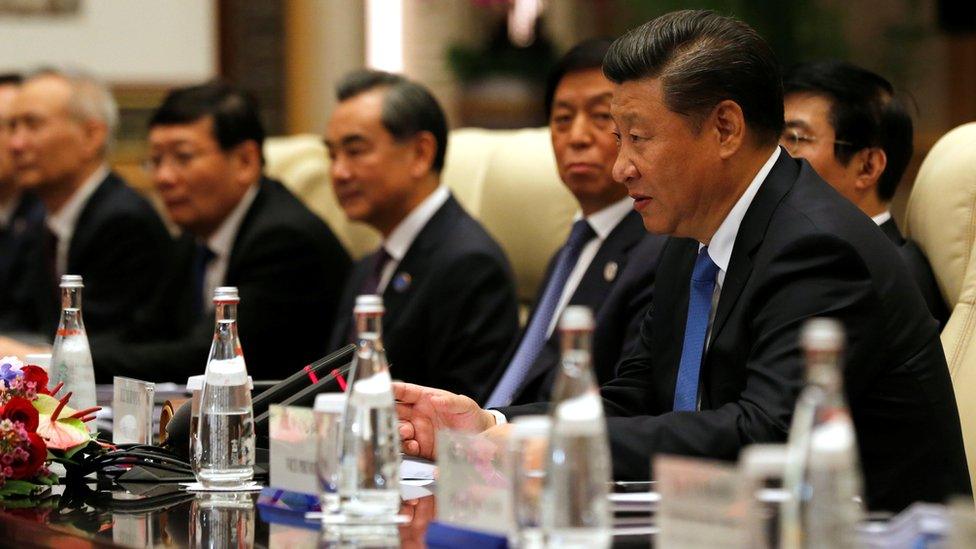
Theresa May will meet Chinese president Xi Jinping at the G20 summit
When asked if she was concerned about causing offence by delaying the decision, she said: "This is the way I operate", explaining she wants to "weigh up the evidence" herself before making a decision later this month.
But when asked if she trusts the Chinese, she bristled, merely responding, "of course we have a relationship, we are working with them", quickly going on to emphasise that she wanted to build a relationship with other countries, too.
The famously cautious prime minister tends to choose her words very carefully.
Welcoming the British delegation, the Chinese leader, who she'll meet one-on-one at the summit, might wonder precisely what she meant.
At the very least the signals from Downing Street suggests a much less eager approach to the Chinese than the former administration, certainly a cooling off after the former Chancellor George Osborne's love in with the Far East's biggest power.
- Published3 September 2016
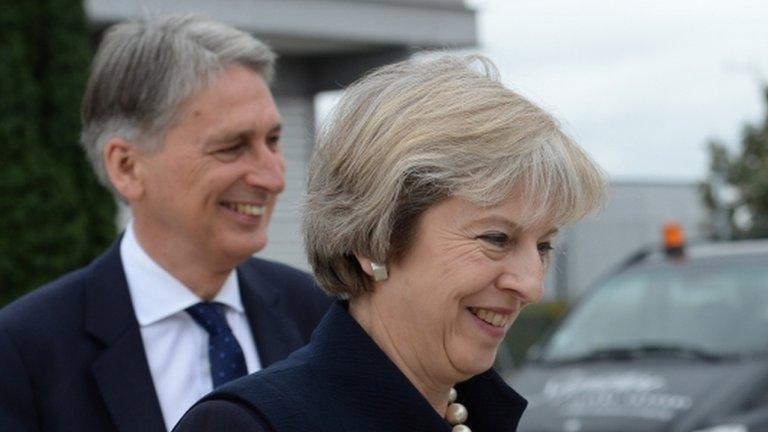
- Published4 September 2016
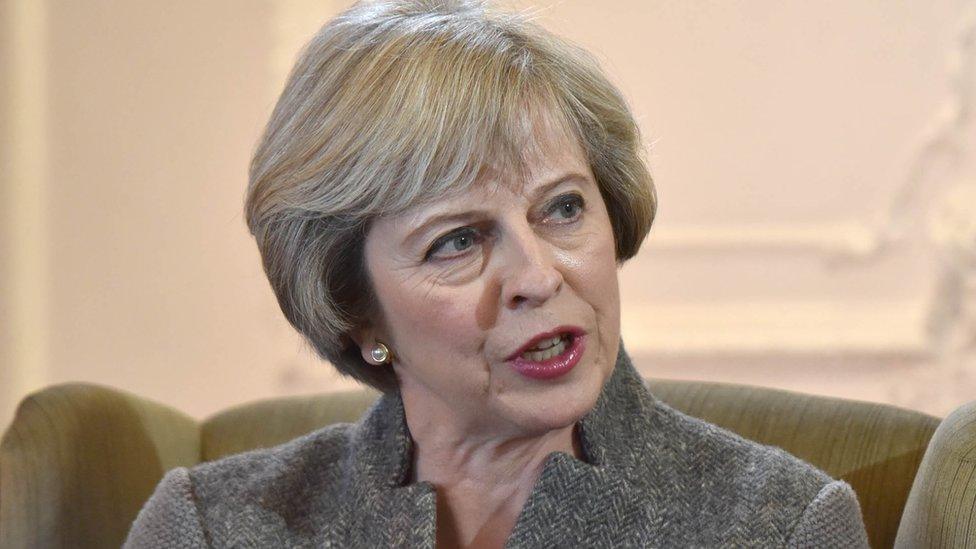
- Published2 September 2016